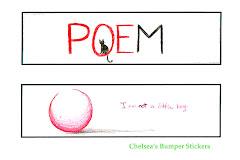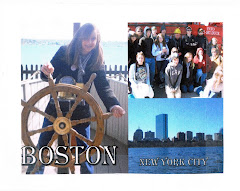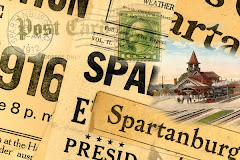 On the literary map, travel from Stamps, Arkansas, to McAlester, Oklahoma.
On the literary map, travel from Stamps, Arkansas, to McAlester, Oklahoma.Calculate:
# _____________ Miles to McAlester, Oklahoma
$ _____________ Cost for Gasoline to McAlester, Oklahoma
Visit John Berryman at www.Poets.org and fill-in-the-blanks.
"John Berryman was born _______________________ in McAlester, Oklahoma, in 1914. He received an undergraduate degree from Columbia College in 1936 and attended Cambridge University on a fellowship. He taught at Wayne State University in Detroit and went on to occupy posts at Harvard and Princeton. From 1955 until his death in 1972, he was a professor at the University of Minnesota."
Read "The Ball Poem" and answer the questions.
Read "The Ball Poem" and answer the questions.
What is the boy now, who has lost his ball,
What, what is he to do? I saw it go
Merrily bouncing, down the street, and then
Merrily over—there it is in the water!
No use to say 'O there are other balls':
An ultimate shaking grief fixes the boy
As he stands rigid, trembling, staring down
All his young days into the harbour where
His ball went. I would not intrude on him,
A dime, another ball, is worthless. Now
He senses first responsibility
In a world of possessions. People will take balls,
Balls will be lost always, little boy,
And no one buys a ball back. Money is external.
He is learning, well behind his desperate eyes,
The epistemology of loss, how to stand up
Knowing what every man must one day know
And most know many days, how to stand up
And gradually light returns to the street
A whistle blows, the ball is out of sight,
Soon part of me will explore the deep and dark
Floor of the harbour . . I am everywhere,
I suffer and move, my mind and my heart move
With all that move me, under the water
Or whistling, I am not a little boy.
What, what is he to do? I saw it go
Merrily bouncing, down the street, and then
Merrily over—there it is in the water!
No use to say 'O there are other balls':
An ultimate shaking grief fixes the boy
As he stands rigid, trembling, staring down
All his young days into the harbour where
His ball went. I would not intrude on him,
A dime, another ball, is worthless. Now
He senses first responsibility
In a world of possessions. People will take balls,
Balls will be lost always, little boy,
And no one buys a ball back. Money is external.
He is learning, well behind his desperate eyes,
The epistemology of loss, how to stand up
Knowing what every man must one day know
And most know many days, how to stand up
And gradually light returns to the street
A whistle blows, the ball is out of sight,
Soon part of me will explore the deep and dark
Floor of the harbour . . I am everywhere,
I suffer and move, my mind and my heart move
With all that move me, under the water
Or whistling, I am not a little boy.
What does the speaker say one must do in the face of loss?
What does line 19 suggest will then happen?
At the end of the poem, he says that “part” of him will explore the bottom of the harbor. What do you think that part of him is looking for here?
How do you interpret the last four lines of the poem?



















